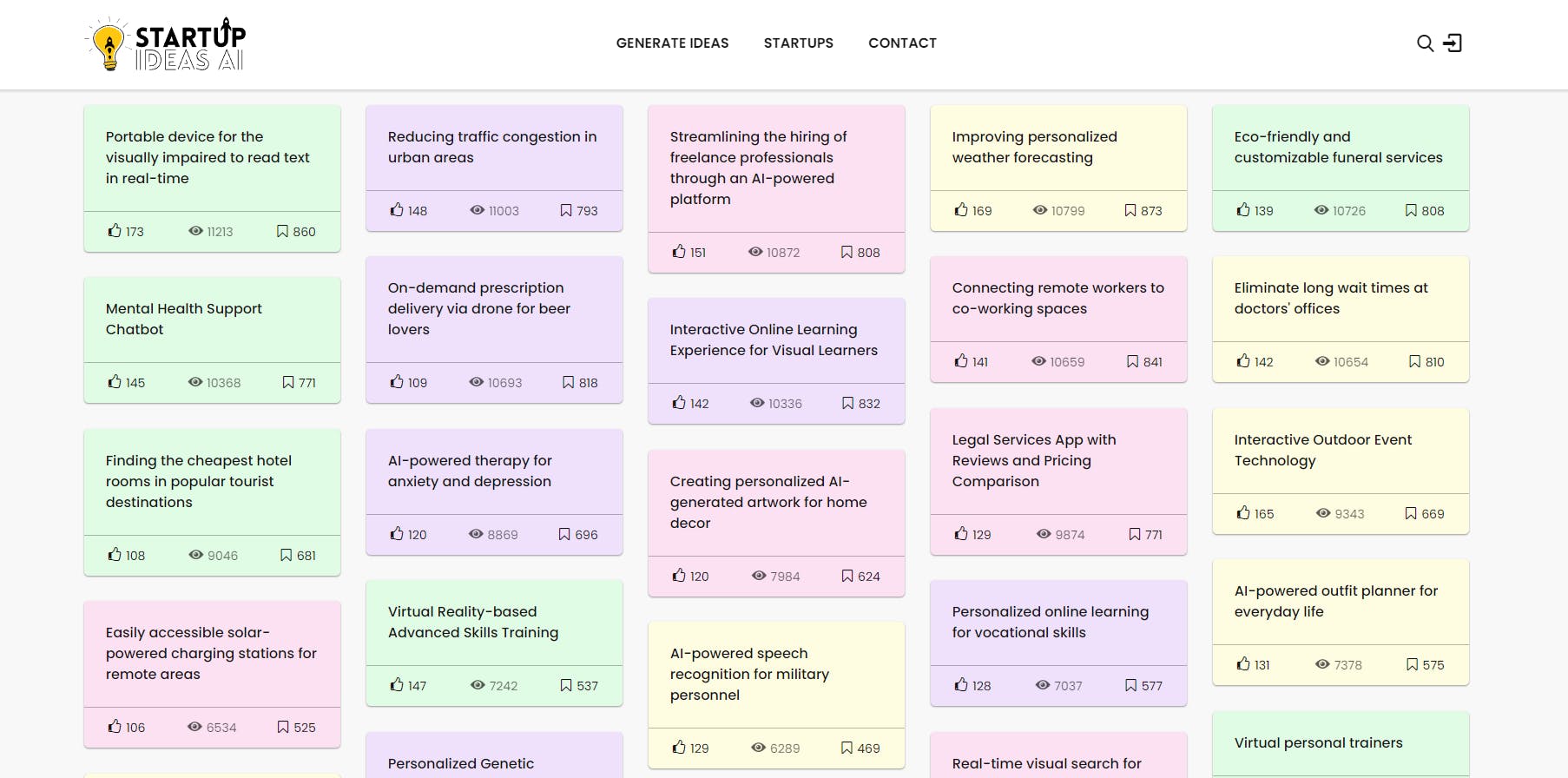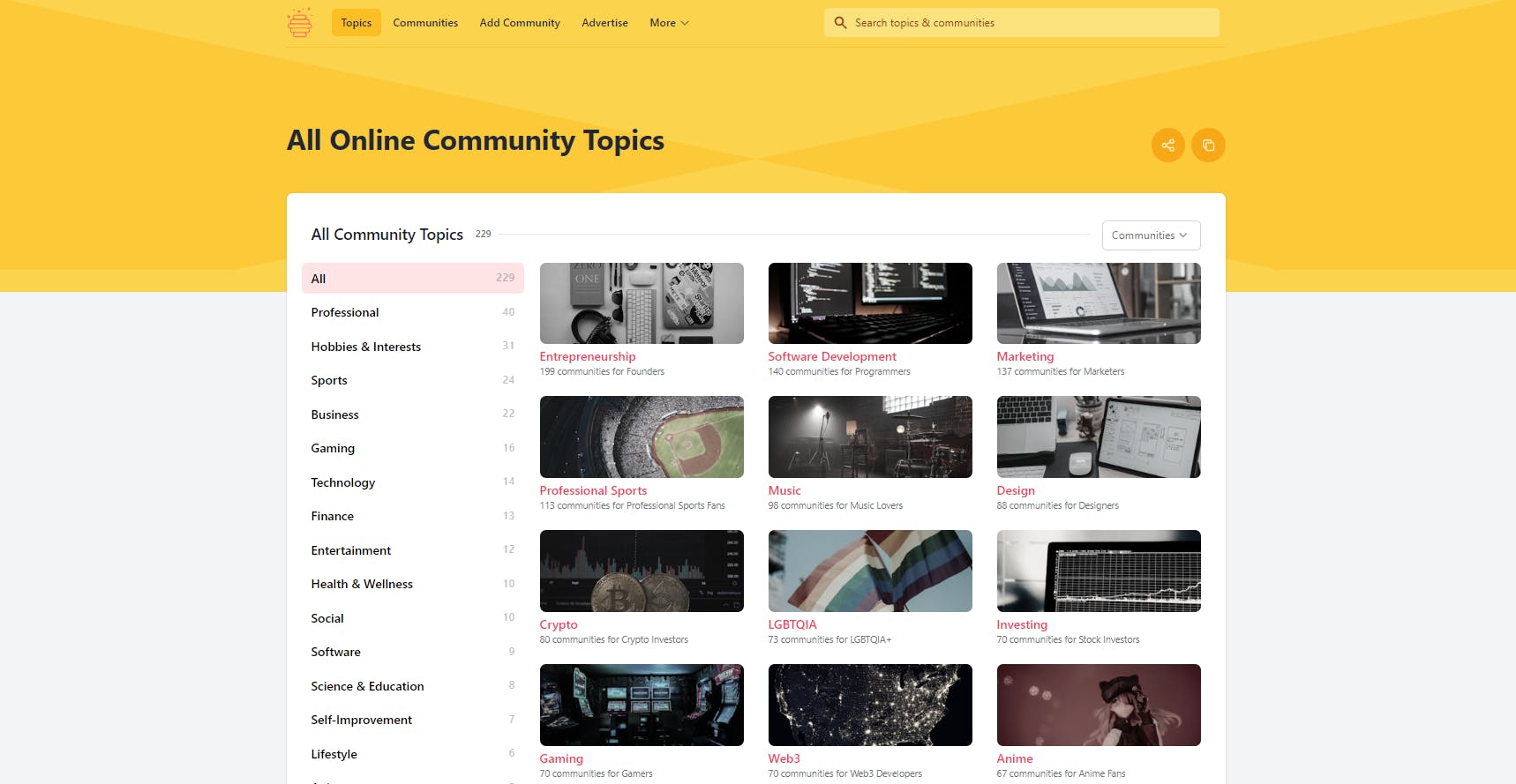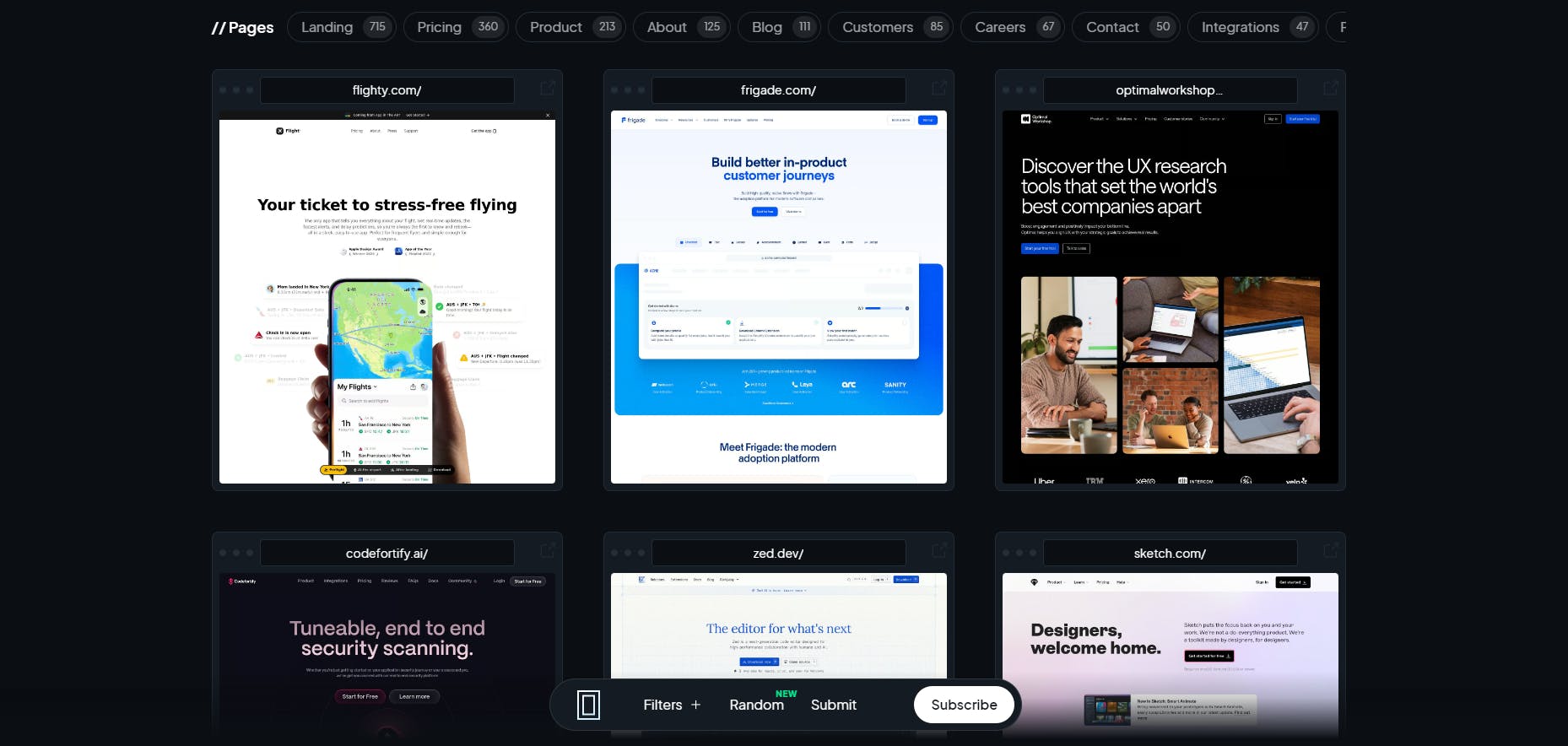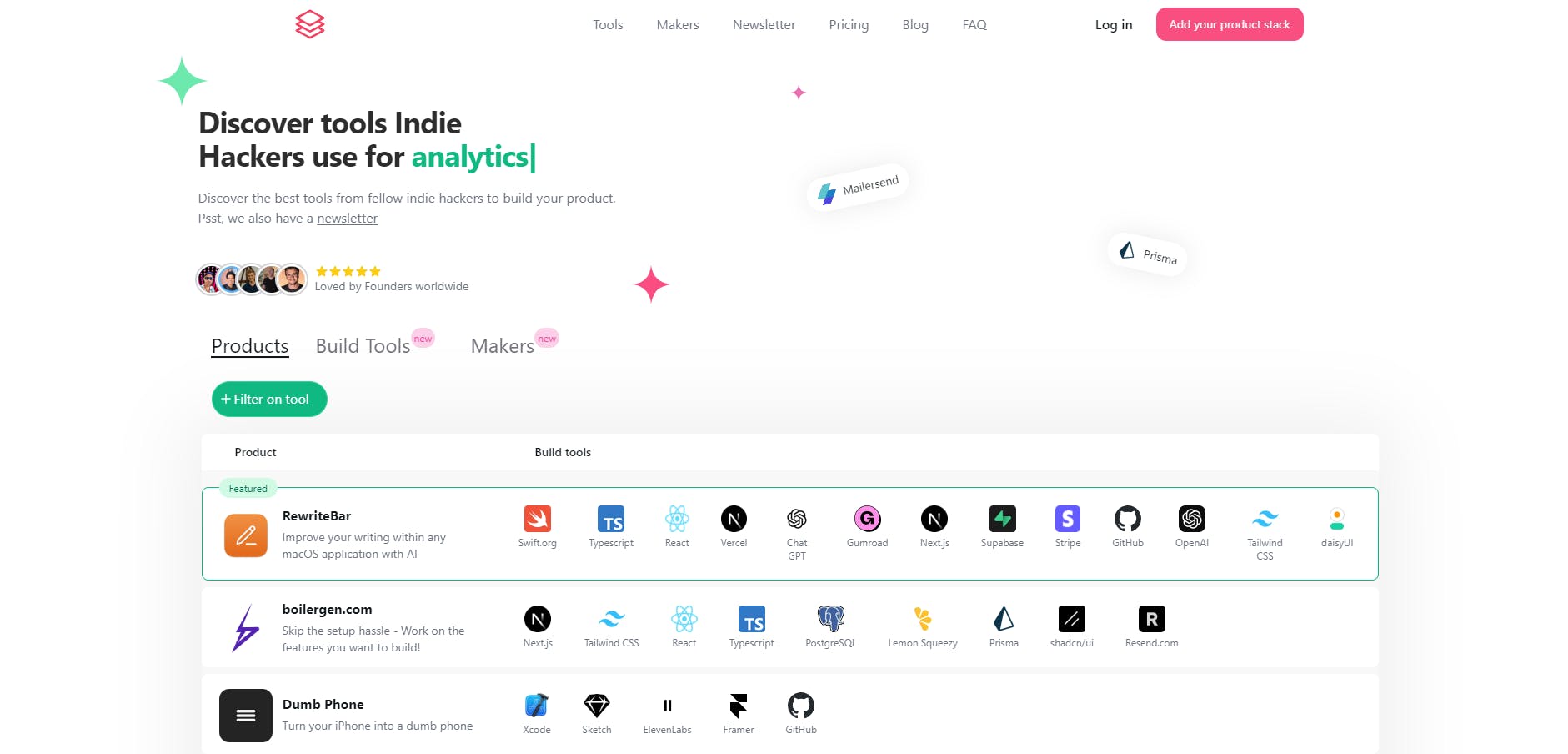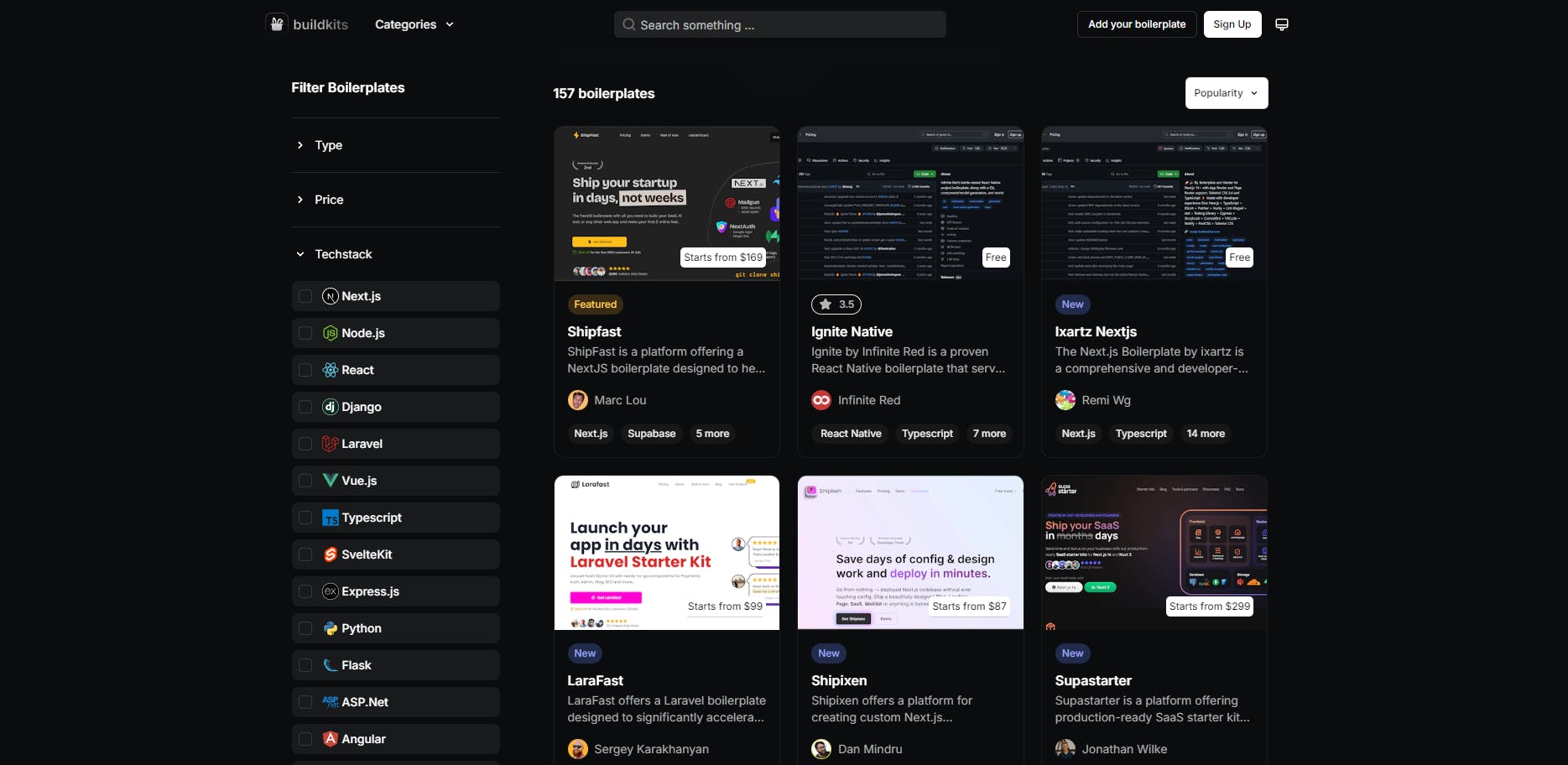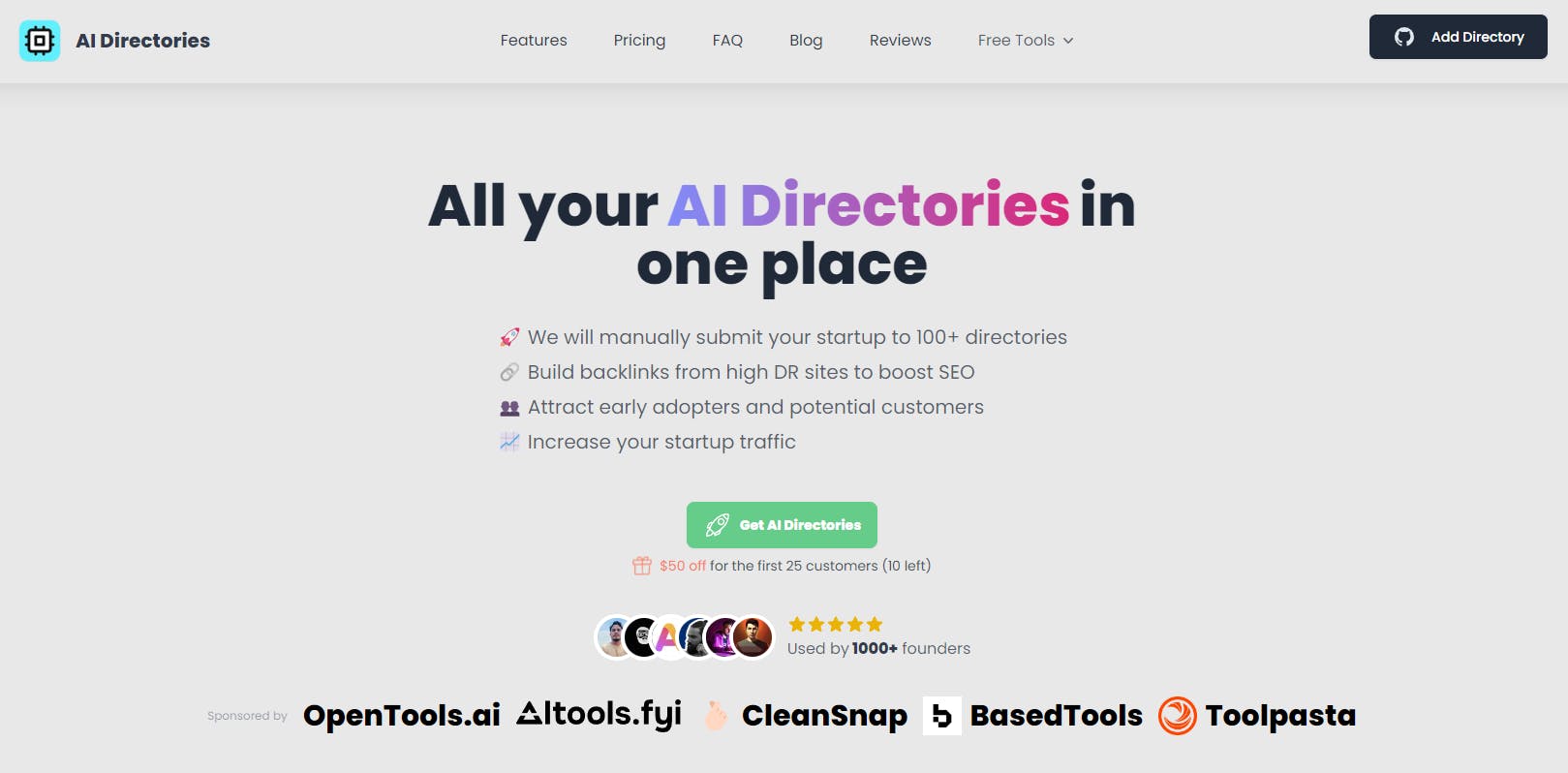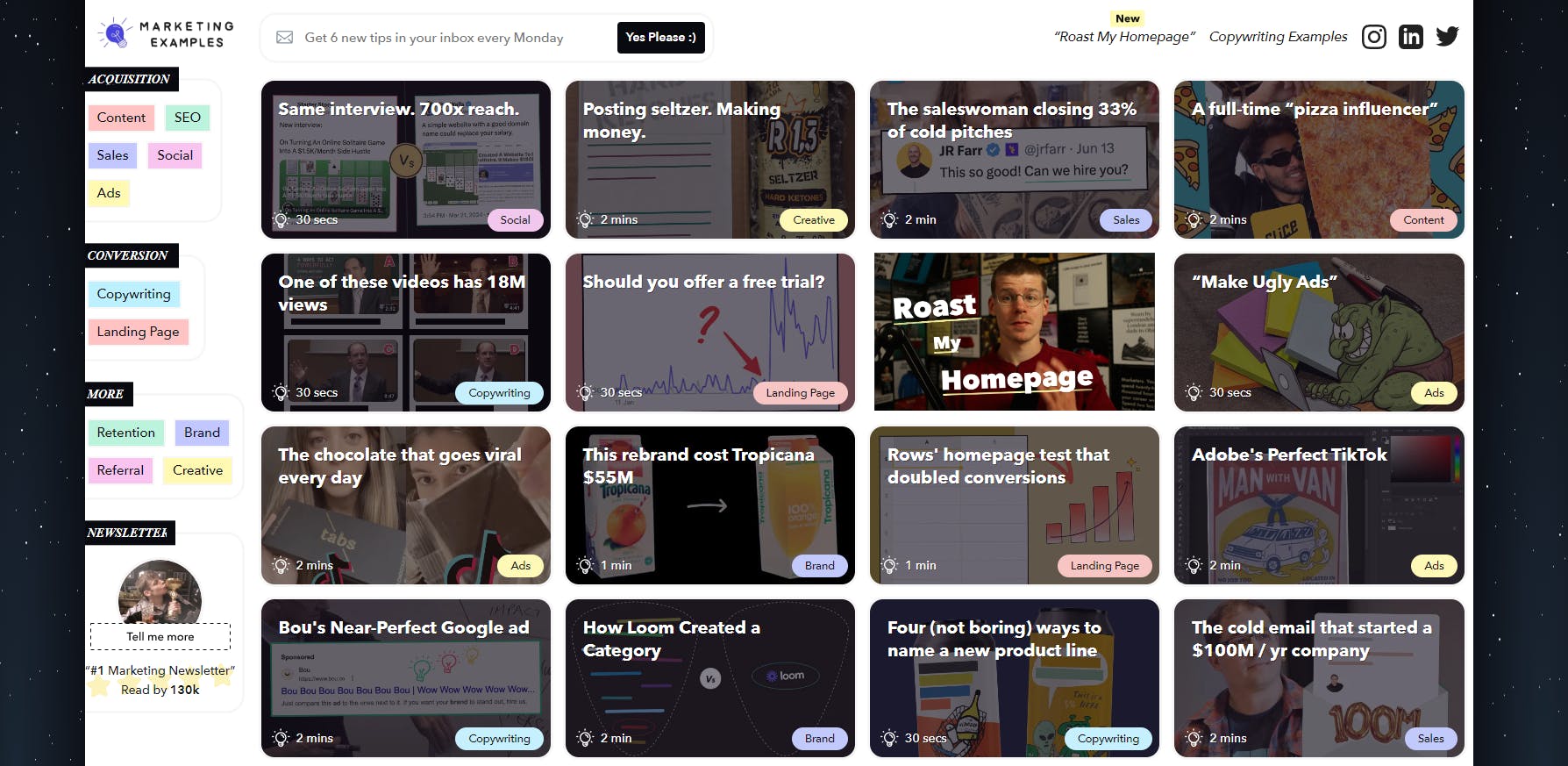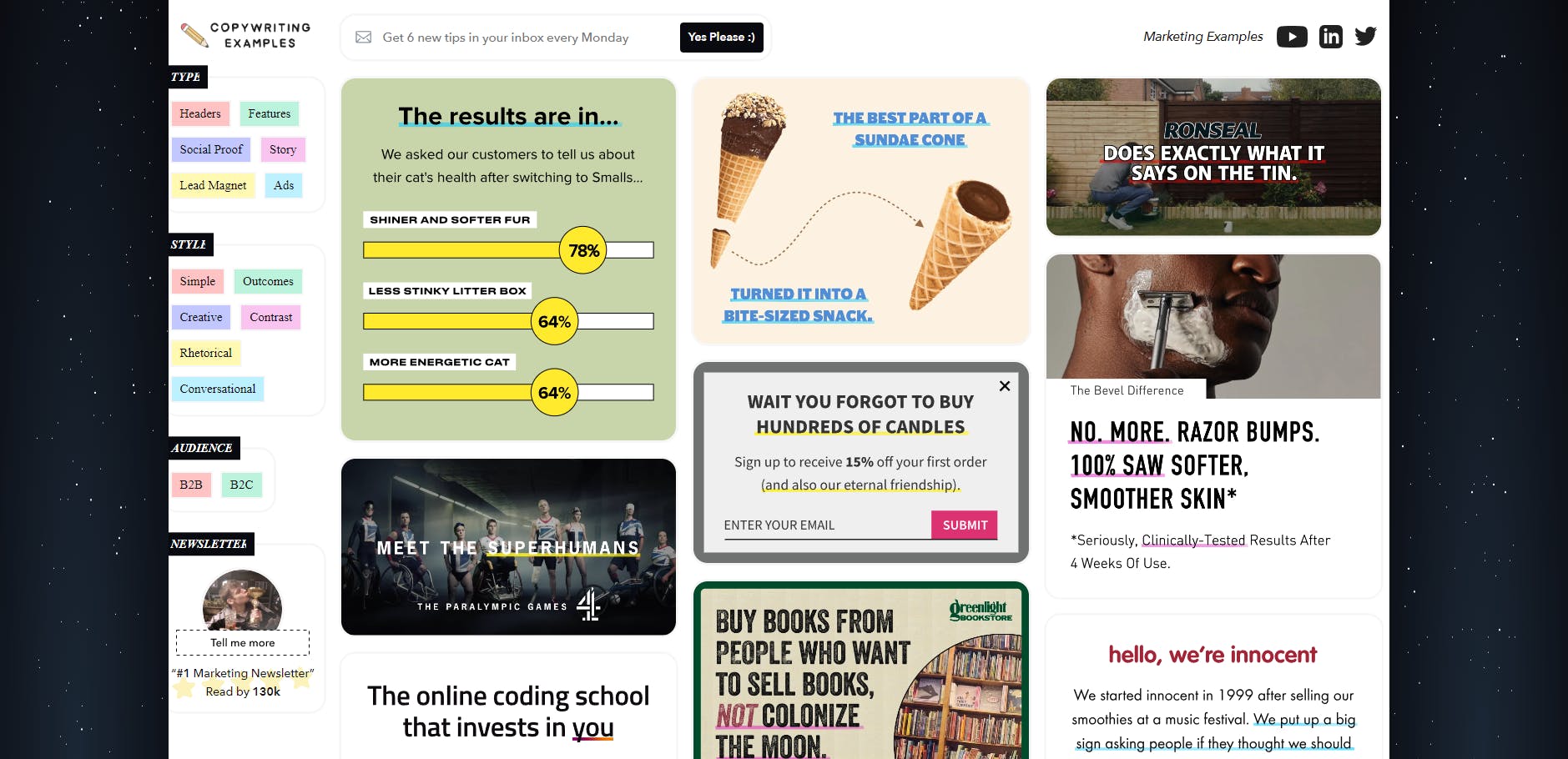Launching a successful Software as a Service (SaaS) product can be daunting. The competitive landscape and the various complexities of product development, marketing, and customer acquisition can feel overwhelming.
This article provides a roadmap to guide you through the product lifecycle from generating innovative ideas and connecting with supportive communities to choosing the tech stacks, launching the product, and mastering effective marketing strategies.
Even more so, I’ve curated 8 resources for each step to help you overcome common challenges in product development. Each tool is carefully selected to enhance your capabilities and inspire you as you embark on your SaaS journey.
Whether you’re starting a new project or refining an existing one, I hope this article will help you create a standout product that resonates with your target audience!
1. Getting Ideas 💡
Generating an idea is the first and most crucial step in the SaaS product lifecycle.
A great idea should solve a real issue for the target audience, but indie hackers often struggle to find a problem where demand and growth potential exist.
➡️ Startup Ideas AI
This resource lists innovative startup ideas based on current market trends.
It saves indie hackers from getting stuck in the ideation phase with fresh ideas and new perspectives that they can review and decide upon.
Key features:
-
Startup ideas to solve real-world problems.
-
Offers ideas based on your preferred niches.
-
Each idea comes with information about market fit, audience, and challenges.
👉 https://startupideasai.com
Pricing: Free
2. Finding Communities 🔎
After having an idea of the product, you should look to validate it through communities with people thinking similarly.
This step is often overlooked and many indie hackers face a hard time finding and engaging niche communities for feedback and support.
➡️ The Hive Index
A directory of online communities on various topics, which helps founders find relevant groups to share and learn from.
Indie hackers may use these niche communities to test the idea, recruit some early adopters, and build a supportive network.
Key features:
-
A comprehensive directory of various online communities.
-
Ability to filter communities by platform: Discord, Reddit, Slack, etc.
-
Communities are sorted into topics like tech, marketing, design, and others.
👉 https://thehiveindex.com/topics
Pricing: Free
3. Design Inspiration 🎨
Design plays a key role in creating a user-friendly and visually appealing SaaS product.
Indie hackers often struggle with finding modern, intuitive designs to enhance the user experience, which is vital for engagement and retention.
➡️ SaaSPO
This platform provides curated design inspiration specifically for SaaS products. It highlights trending designs and innovative user interfaces across the SaaS industry.
By offering a collection of creative designs, it helps indie hackers get some source of inspiration for prototyping their own user interfaces.
Key features:
-
Showcases creative and modern design templates.
-
Provides screenshots for both web and mobile versions.
-
Features categories like landing pages, pricing, contact, etc to filter content.
👉 https://saaspo.com
Pricing: Free
4. Planning the Tech Stack 🧑💻
Choosing an appropriate tech stack is fundamental to developing a scalable and maintainable SaaS product for the long term.
Many indie hackers face difficulties picking the best tools and technologies that align with their project requirements.
➡️ Indie Hacker Stacks
This tool provides real-world examples of tech stacks used by successful indie hackers. It lists the technologies and tools they used to build their SaaS products.
Indie Hacker Stacks helps founders streamline their development process by offering proven and tested tech stack combinations.
Key features:
-
Discover tech stacks used by indie hackers to build successful products.
-
See what tools fellow entrepreneurs recommend and are most popular.
-
Share your own tech stack and get visibility within the community.
👉 https://indiehackerstacks.com
Pricing: Free
5. Build and Ship Faster ⚡
Using boilerplates can significantly accelerate the development process.
They enable indie hackers to save time, allowing them to focus on business logic and create unique features that differentiate their product in the market.
➡️ BuildKits
BuildKits offers a variety of code boilerplates tailored for different types of tech stacks.
This tool streamlines the development process, enabling indie hackers to quickly set up their applications and reduce initial coding and redundant stuff.
Key features:
-
Provides ready-made code boilerplates to accelerate development.
-
Projects are highly customizable to fit different needs and languages.
-
Focuses on helping developers save time by using pre-built setups.
👉 https://buildkits.dev
Pricing: Free
6. Product Launch 🚀
Choosing the right launch sites is vital to maximize visibility and reach the target audience.
Many indie hackers struggle to find suitable platforms to promote their products, leading to missed opportunities for user feedback and initial traction.
➡️ AI Directories
AI Directories offers to manually submit your product on a curated list of launch sites specifically focused on AI and tech products to increase your startup traffic.
This tool helps indie hackers list their startups, increasing their chances of gaining visibility and attracting early adopters.
Key features:
-
Offers to publish your product on 200+ sites.
-
Allows you to build backlinks from high DR sites to boost SEO.
-
Detailed information on the domain ratings, monthly visitors, pricing, etc.
👉 https://aidirectori.es
Pricing: Paid
7. Post-launch Marketing 📰
Studying marketing examples is vital for understanding effective strategies and tactics within the product lifecycle.
Analyzing successful campaigns helps indie hackers identify what resonates with their audience and refine their marketing efforts accordingly.
➡️ Marketing Examples
This tool provides real-world marketing examples to help indie hackers craft successful campaigns based on proven real-life strategies.
With these examples, founders can learn how to market their SaaS effectively and stand out from the competition.
Key features:
-
Case studies and examples from real businesses.
-
Visuals and short descriptions make the examples quick to understand.
-
Offers ideas and inspiration to enhance your own marketing efforts.
👉 https://marketingexamples.com
Pricing: Free
8. Sales and Conversion 💰
Effective copywriting is crucial in attracting and converting users.
Many indie hackers struggle with writing compelling content that drives engagement, making it essential to learn from successful examples in the field.
➡️ Copywriting Examples
This resource provides a collection of high-performing copywriting examples from successful SaaS products and campaigns.
By studying these examples, indie hackers can refine their own copy to improve conversion rates and engage users more effectively.
Key features:
-
Focused examples of effective marketing copy.
-
Breakdowns of why certain campaigns worked well.
-
Covers various industries and platforms, including email, social media, and ads.
👉 https://marketingexamples.com/inspiration
Pricing: Free
Did you like the resources? Here is more 👇
Join 6000+ others to receive the best DEV resources, tools, productivity tips, and career growth advice I discover by subscribing to my newsletter!
Also, connect with me on Twitter, LinkedIn, and GitHub!
Writing has always been my passion and it gives me pleasure to help and inspire people. If you want to get featured or partner up, feel free to get in touch!

